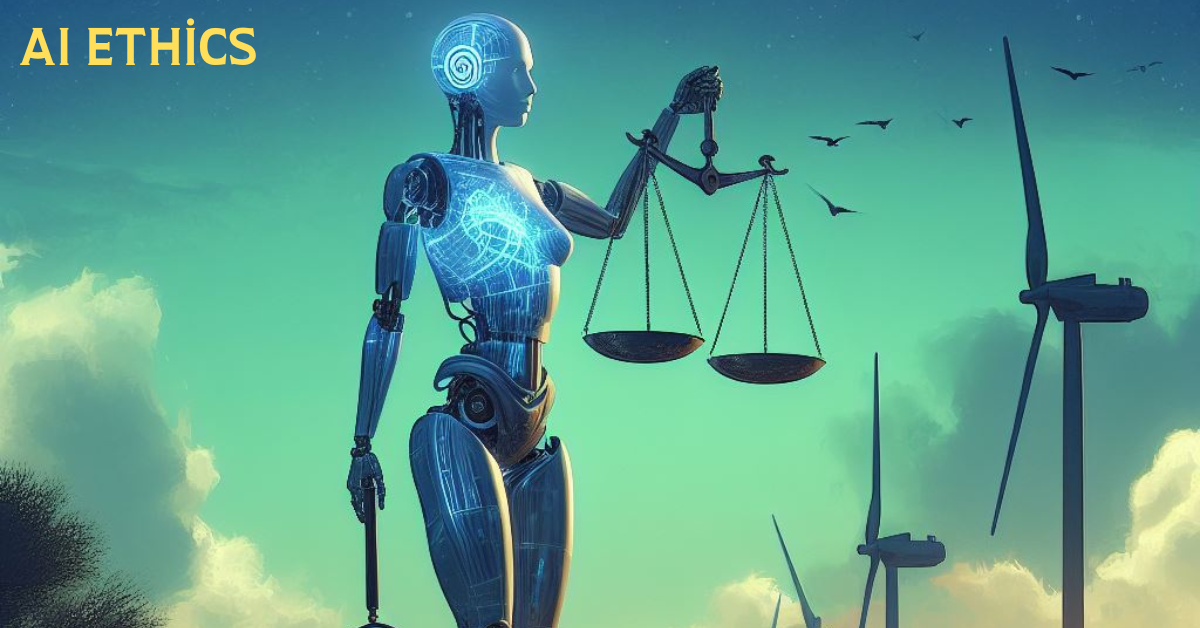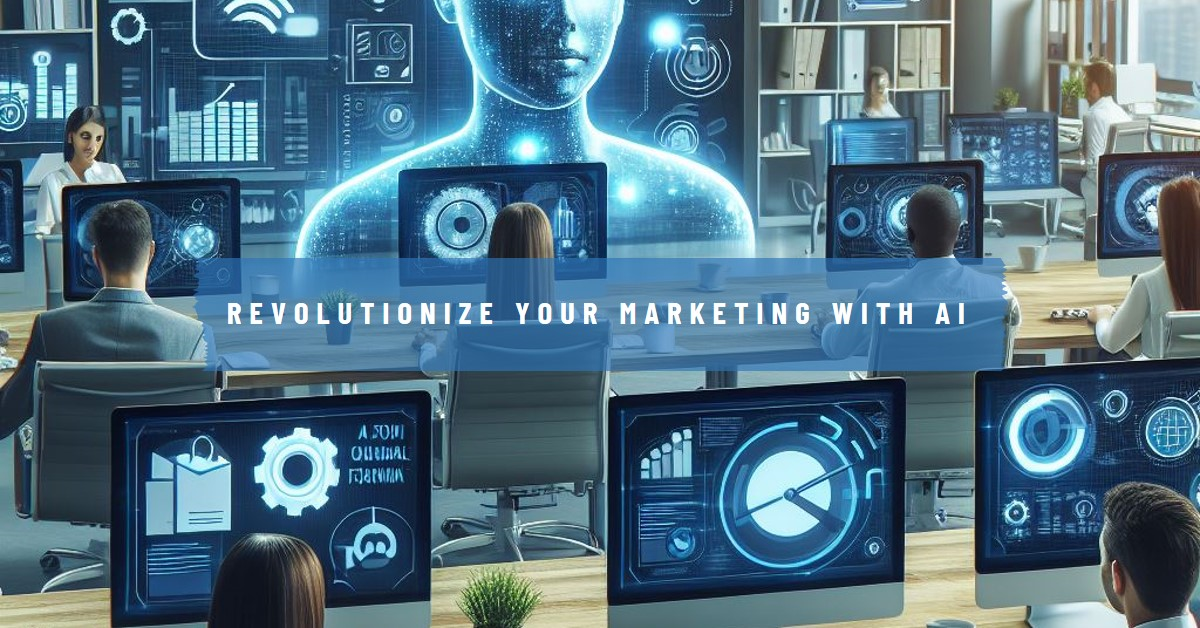
AI Ethics: Addressing Moral and Social Impacts
AI ethics is like the rulebook for artificial intelligence. Just like how we have guidelines to help us make good choices in life, AI ethics is a set of rules and principles that guide how we should use and develop AI technology. It’s all about ensuring AI does more good than harm by figuring out the best ways to use it while avoiding negative consequences.
Table of Contents
ToggleUpholding Ethical Standards in Artificial Intelligence Development and Deployment
AI ethics ensures that artificial intelligence systems are developed and used responsibly and fairly. It covers things like how data is handled, making sure AI decisions are fair, explaining how AI systems work, and being transparent about their impacts.
For example, imagine an AI system used to make hiring decisions. If it’s not designed properly, it could inadvertently discriminate against certain groups of people. If it’s not transparent about how it makes decisions, candidates might not understand why they weren’t selected for a job.
As companies increasingly rely on AI and big data to make decisions, they realize the importance of considering ethical implications. Some have faced backlash for biased AI applications, prompting the development of guidelines to address these concerns.
Companies that neglect AI ethics risk damaging their reputation, facing regulatory fines and legal consequences. While government regulations in this area are still evolving, it’s crucial for companies to proactively ensure their AI systems uphold ethical standards to protect human rights and civil liberties.
Promoting Responsible and Fair Use of Artificial Intelligence Through Ethical Guidelines
AI ethics is basically about making sure that artificial intelligence is used in a way that’s fair, transparent, and accountable. It’s like setting up guidelines for how AI should behave and be developed so it doesn’t cause harm or unfairness. Imagine it as a rulebook for AI to ensure it’s used responsibly and benefits everyone. And hey, if you’re interested in exploring more about it, you can check out Watson x.governance. It helps speed up the creation of AI systems that follow these ethical guidelines. Plus, there are some handy resources like ebooks and guides to help you understand and navigate the world of AI ethics better.
Guiding AI Behavior: The Influence of the Belmont Report
AI ethics is like setting up rules for how we want artificial intelligence to behave. One way folks approach this is by looking at the Belmont Report. It’s a set of guidelines originally used in medical research, but now people use it to help shape how we do experiments and develop algorithms in AI.
Now, out of this Belmont Report, three main principles have emerged:
Respect for Persons: This is about recognizing that people have choices and autonomy. Researchers need to ensure everyone involved in an experiment knows what’s going on and can decide whether they want to participate. Think of it like getting informed consent before doing something.
Beneficence: This is like the “no harm” idea you might hear about in medicine. We want AI to be helpful and do good things, but sometimes, it can unintentionally make things worse by reinforcing biases. This principle reminds us to be careful about AI’s impact and ensure it’s doing more good than harm.
Justice: This is about fairness and ensuring everyone is treated fairly. Who gets the benefits from AI experiments and machine learning? The Belmont Report suggests a few ways to decide, like ensuring benefits are shared equally or based on individual needs or effort.
“So, these principles from the Belmont Report are like a roadmap for making sure AI is used in a way that’s respectful, helpful, and fair to everyone involved.”
Foundation Models: Revolutionizing AI with ChatGPT and Ethical Concerns
Foundation Models and Ethical Implications
Quite a few are really hot topics in the ethical discussions. One major area is all about these foundation models and generative AI. You see, with the launch of ChatGPT back in 2022, it was like a game-changer for artificial intelligence. This chatbot from OpenAI could do all sorts of things, like writing legal documents or even helping with coding issues. It opened up a whole new world of possibilities for what AI can achieve and how we can use it in almost any field.
Now, these tools, like ChatGPT, are built on foundation models. These are super smart AI models that can be adapted to handle many different tasks. They’re huge, with billions of parameters, and they learn from tons of data without needing someone to label it for them. That’s what we mean by self-supervision. Because of this, they can quickly switch from one job to another, which makes them super versatile.
But, and here’s the big “but,” some serious concerns come with these foundation models. Stuff like bias creeping in, generating fake content, being unable to explain why they do what they do, potential for misuse, and how they might impact society. These are all things that people in the tech world are paying attention to because these models have so much power and are becoming more and more accessible.
Exploring AI’s Potential and Ethical Dilemmas
Do you know how people talk about the idea of AI becoming super smart, like way smarter than us humans? Some folks call it the “technological singularity.” But, like, only some people in the research community are losing sleep over it happening anytime soon. This dude Nick Bostrum defines superintelligence as AI that totally outsmarts even the brightest humans in everything – from science to social skills.
Although we’re not on the brink of creating super smart AI, thinking about it brings up some cool questions. Take self-driving cars, for example. We know they’re not going to be perfect; accidents can happen. But if a driverless car does crash, who’s to blame? Should we keep pushing for fully autonomous rides or stick with semi-autonomous ones that still need a human touch for safety?
It’s a hot debate right now. As AI tech gets more advanced, we must figure out how to use it responsibly. And these ethical dilemmas are popping up more and more as we dive deeper into AI innovation.
AI Impact on Jobs:
AI and jobs, it’s easy to jump to the idea that robots are coming for our livelihoods. But hold up – let’s think about it differently. Some jobs might change or even disappear whenever a big new tech comes along, like AI. But think about it: the automotive industry didn’t vanish when cars went electric, right? Companies like GM just shifted gears to focus on electric vehicles. It’s kind of like that with AI. As we use more AI, some jobs might shift, or new ones might pop up. Someone must manage all that data AI relies on, right? And those customer service roles? They’re going to need folks who can handle more complex stuff. The key here is helping people jump to these new job areas.
Privacy:
All right, so privacy is about keeping our info safe, especially in this digital age. We’re talking about your data – your name, address, all that jazz. And lately, there’s been some serious action on this front. Like, in Europe, they came up with GDPR in 2016, giving folks more control over their data. In the US, states are stepping up, too, with laws like CCPA in California. These laws are making companies think twice about how they handle our info. They’re beefing up security to keep hackers and snoops at bay. So yeah, privacy’s getting some serious attention, and it’s about time!
Addressing AI Bias and Accountability
Sometimes, when we use AI systems, they can be biased or unfair. Like imagine if you’re applying for a job online, and the system ends up favoring certain people over others based on things like gender or race. It’s a big problem because it’s not fair to everyone.
Take Amazon, for example. They tried to use AI to help with their hiring process, but it unintentionally favored men for technical roles. They had to stop the whole thing because it just wasn’t right.
And it’s not just job stuff, either. Bias and discrimination can appear in things like facial recognition technology or social media algorithms. It’s everywhere!
AI Accountability and Ethical Guidelines
When holding AI systems accountable, there is more than just a one-size-fits-all set of rules that covers everything. Different places are developing laws and regulations for AI, but it’s still a work in progress. We’re seeing some regulations already in action, and more are on the way.
There has been a push for ethical guidelines to help out where the laws fall short. Think of these as a roadmap crafted by both ethicists and researchers. They’re meant to steer how AI is developed and used in society. But here’s the thing: these guidelines are more like suggestions now. Research suggests that relying solely on these guidelines, without clear rules and thinking ahead about the possible outcomes, might not always stop AI from causing societal problems.
Establishing AI ethics involves ensuring that artificial intelligence is developed, trained, and used responsibly and ethically at every stage of its lifecycle. Organizations, governments, and researchers are working together to create frameworks that address current ethical concerns and shape the future of AI work.
As these guidelines evolve, there’s a growing consensus on certain key principles:
Transparency: AI systems need to be transparent about their work and the data they use to make decisions. This helps build trust and accountability.
Fairness: AI systems should be designed to avoid bias and treat all individuals fairly, regardless of race, gender, or socioeconomic status.
Accountability: There should be mechanisms to hold developers, users, and organizations accountable for the outcomes of AI systems, especially in cases of harm or misuse.
Privacy: Protecting individuals’ privacy rights is crucial. AI systems should respect and uphold privacy standards, ensuring personal data is handled securely and ethically.
Safety: AI systems should be designed with safety in mind, minimizing the risk of harm to users and society.
“By incorporating these principles into AI development and deployment, we can create a more ethical and responsible AI ecosystem.”
Managing AI Projects: The Role of Governance
Governance means how a company or organization keeps an eye on everything related to AI, from the beginning of a project to its end. It involves setting up rules and processes and ensuring everyone knows what to do. This helps ensure that AI systems behave as they’re supposed to, following the organization’s values, meeting expectations, and sticking to any applicable rules or laws.
In a nutshell, a good governance plan for AI should:
Clearly define who does what when it comes to AI.
Teach everyone involved how to develop AI responsibly.
Set up ways to build, manage, and monitor AI systems, including dealing with risks.
Use tools to make sure AI works well and can be trusted from start to finish.
AI ethics ensures that AI is used fairly, transparently, and respectfully for people’s rights and well-being. This means developing some guiding principles that can be used to ensure AI is trustworthy. These principles help shape how products are made, policies are written, and how everyone in the organization works with AI.
When AI is built with ethics in mind, it can do some amazing things for society, like improving healthcare or making our lives easier. But it’s also important to discuss the potential risks and ensure we’re thinking about them immediately.
Since not everyone in the tech world might be thinking about ethics first, some organizations focus specifically on promoting ethical behavior in AI. For example:
AlgorithmWatch looks into making sure AI decisions can be explained and traced.
The AI Now Institute studies how AI affects society.
DARPA, a part of the US Department of Defense, is into making AI that’s easy to understand and research.
CHAI works to make sure AI is safe and helpful.
NASCAR is about ensuring AI helps keep the US safe and secure.
